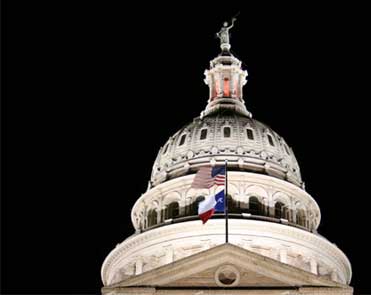
ON COURT’S OWN MOTION “Did the court of appeals err in holding that the charge did not have to include a special jury unanimity instruction requiring that the jury be unanimous as to whether appellant was guilty of aggravated robbery by threat or aggravated robbery by bodily injury?”
1. “The court of appeals disregarded the plain language of Election Code § 255.004(b) (the ‘True Source of Communication’ statute) and misconstrued it to unlawfully require identification of the source of a campaign communication. On its face, the statute does not require identification of the so...
“The Court of Appeals Erred to Find That the State Was Required to Provide Appellant with Specific Notice as to Which Manner and Means the State Would Seek to Prove.”
(1) “By holding that before a pretrial facial challenge to the constitutionality of a statute is cognizable, a favorable resolution of the challenge must result in immediate release on all charges in the indictment, the Eighth Court of Appeals has decided an important question of state law tha...
1. “A divided appellate court ignored the law governing the review of suppression rulings by usurping the deference given to the trial court as to the credibility of witnesses and evidence.” 2. “A divided appellate court disagreed on a material question of law necessary to the court’s decision ...
“The Court of Appeals erred by declaring that the evidence developed in the hearing on Petitioner’s motion for new trial was void because the trial court had no authority to hold the hearing beyond the trial court’s 75-day plenary period, even though the trial court relied on the plain language i...
“Did the lower court properly adopt a restitution standard under Bailey [v. State, 171 S.W.3d 639 (Tex. App.—Houston [14th Dist.] 2005)] or did this Court’s opinion in Hanna [v. State, 426 S.W.3d 87 (Tex. Crim. App. 2014)] replace any pre-Hanna restitution standards, which eliminated any conflict...
1. “The Court of Appeals’s majority erred in holding that Officer Pope had reasonable suspicion to prolong Appellant’s detention to conduct a canine sniff after the purpose of the traffic stop had concluded.” 2. “The Court of Appeals’s majority erred in viewing Appellant’s refusal to give consent...